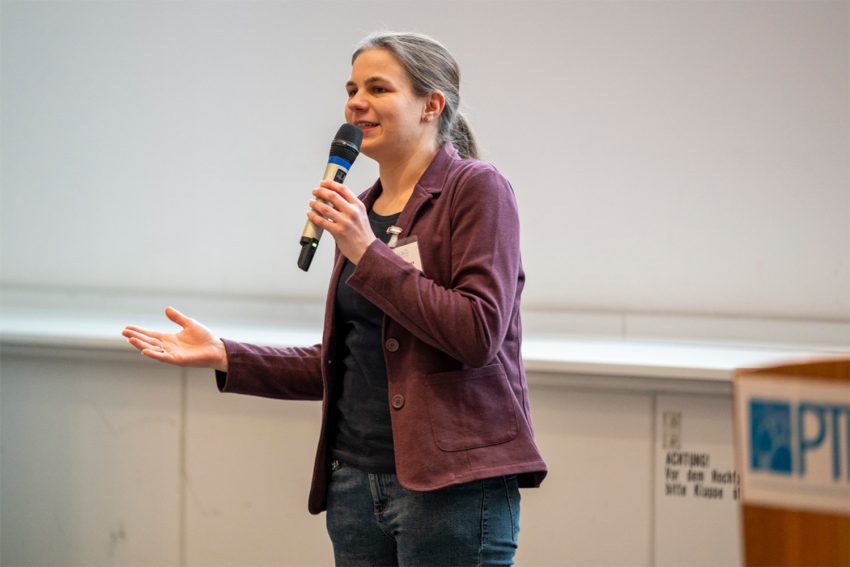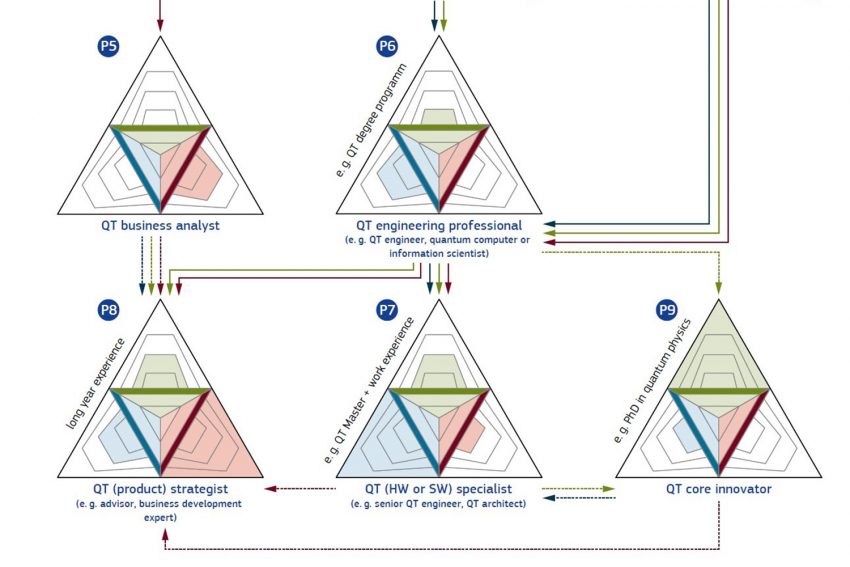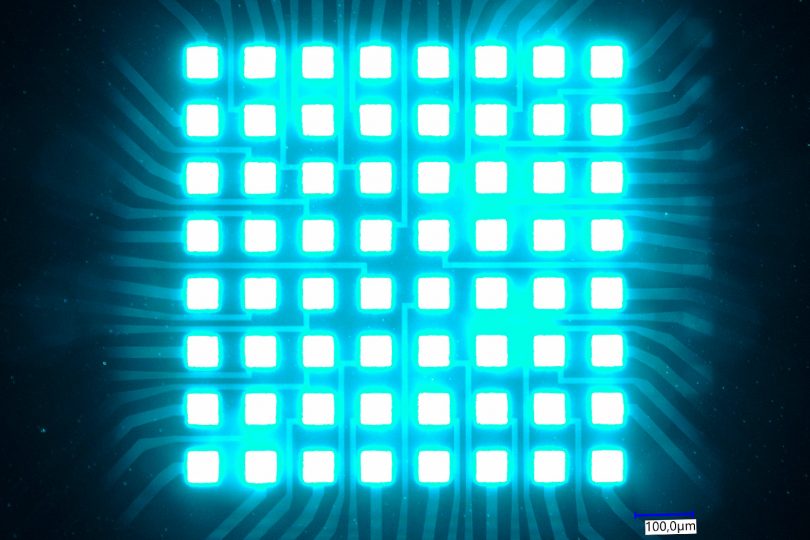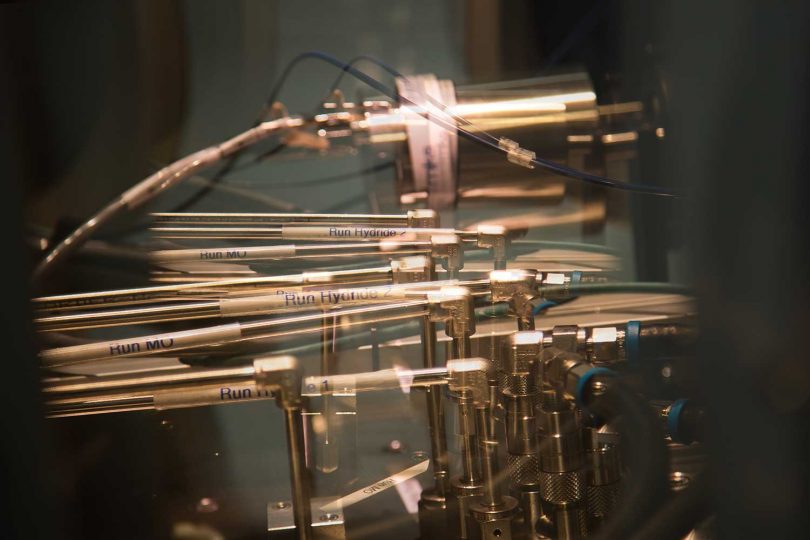Roadmap for quantum careers around the world Braunschweig reference framework for quantum technology education sets international standards
New technologies such as quantum computers and sensors require specialists who combine both quantum physics and engineering expertise. What was previously a professional niche is increasingly becoming a full-blown skills shortage as the market matures. Reason enough to train new quantum engineers around the globe. But how can you guarantee that the quantum engineer from Costa Rica has the necessary qualifications for a German quantum start-up? One solution lies in the European Competence Framework for Quantum Technologies, which researchers at the TU Braunschweig developed for the EU Commission and are developing into an international standard.

Networking for a successful framework: Franziska Greinert not only establishes numerous industry contacts for the framework at trade fairs, but also continuously presents the work at expert conferences. Picture credits: PTB
Franziska Greinert and Professor Rainer Müller presented the current version 2.5 of the European Competence Framework in April 2024. Based on interviews with industry partners, the researchers of TU Braunschweig had identified and structured fundamental competences for professions in the quantum field. In the previous version, they had already summarised key topics and concepts in a type of map. The new version of the framework builds on this and transforms the map into a user-friendly tool. A ‘Proficiency Triangle’ now records competences in three core areas with levels from A1 to C2, similar to language learning. The standardised system thus shows individual qualification profiles at a glance for a wide range of activities, from development engineer to business analyst to decision-maker.
An accompanying tool can also be used to generate new profiles. With the new profiles, teachers, learners and companies can quickly understand which skills are crucial in a particular occupational field. Franziska Greinert published the underlying research work on 10 December 2024 in the journal ‘EPJ Quantum Technology’.

The ‘Proficiency Triangles’ locate different qualification levels from A1 to C2 in three areas: The Theoretical Foundations (green), Engineering Skills (blue) and Business Expertise (red).
Becoming a standard from Braunschweig via Vancouver to Colombia
The extent to which the new Competence Framework is shaking up the educational landscape in the field of quantum technologies can already be seen regionally, throughout Europe and even beyond. In the Lower Saxony region, the various partners of Quantum Valley Lower Saxony (QVLS) are building their programmes on the reference framework. For example, the QuantumFrontiers Cluster of Excellence is steadily expanding two new Master’s degree programmes in the field of quantum engineering in Braunschweig and Hanover based on the Competence Framework. The work of the Quantum Technology Competence Centre (QTZ) at the Physikalisch-Technische Bundesanstalt (PTB) is also based on the analyses of the Braunschweig didactics department. At European level, the QTIndu network integrates the framework in order to offer standardised and comparable quantum technology courses for industry throughout Europe.
The European Competence Framework for Quantum Technologies is also having an impact beyond Europe: at the presentation of the framework at the IQT conference in Vancouver, Canada, a Canadian teacher who used the framework for her course preparation immediately expressed her gratitude. Meanwhile, researchers at the National University of Colombia are using the framework as a basis for designing university courses. Especially when setting the course for such programmes, the framework helps to keep both the needs of the industry and the didactic principles in mind.


